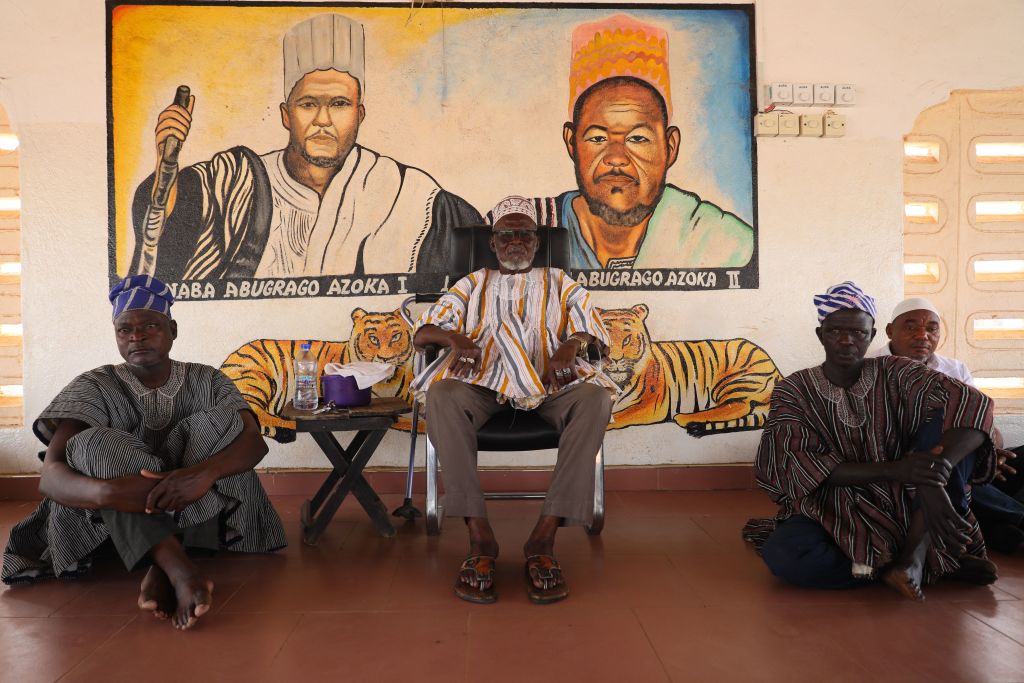ADF STAFF
Decades of simmering ethnic tensions in the northern Ghanaian town of Bawku recently boiled over into armed violence.
Security forces have been deployed, and the conflict has captured the attention of the country and raised fears of terrorist groups expanding into the region.
Experts say the conflict in Bawku poses a serious threat to Ghana’s security, as violent extremist organizations often exploit local unrest.
On March 27, Ghanaian President Nana Akufo-Addo was asked whether al-Qaida is already in Ghana.
“I don’t know. Formally, we don’t have any information to that effect,” he said at a news conference. “It may well be that there are cells already in the country.”
Two days later, a government spokesperson set out to assure the world of Ghana’s stability by clarifying the president’s statement.
“We have not arrested any terrorist who belongs to any of the rising terrorist groups in the region of West Africa,” Palgrave Boakye-Danquah said during an interview with Neat FM radio. “The heads of security are doing all they can to ensure [that] if terrorists are present in the country, they will be apprehended and duly prosecuted.”
Experts and Ghanaian politicians are sounding alarms that Bawku is an obvious tinderbox that militant extremists can easily exploit.
Just more than 5 kilometers from Ghana’s porous border with Burkina Faso, Bawku is a hub of commerce with Sahelian countries. The area also is known for well-established smuggling routes and illegal gold mining.
Together, they make a tantalizing combination for terrorist organizations.
Adib Saani, executive director of the Accra-based Jatikay Center for Peace Building, said Bawku is Ghana’s “weakest link” in its fight to protect the country from terrorist expansion.
“The possibility of terrorist elements taking advantage of the situation in Bawku to creep into the country is very high,” he told The Ghana Report news website. “Bawku has become a semi-lawless society as a result. Criminal elements will thrive, including those engaged in the trafficking of weapons and humans.”
The spark in Bawku was a chieftaincy dispute dating back to 1983 that recently reignited tensions. More than 30 people have been killed in fighting along ethnic lines between December and April, according to police.
The proliferation of automatic weapons has driven up the death toll as well as suspicions of their origins.
On April 3 near Bawku’s police department, gunmen opened fire on three off-duty immigration officers in their vehicle, killing one.
Ghana responded by deploying 1,000 special forces to the area to secure the border with Burkina Faso. Government officials previously had announced plans to send 5,000 security personnel to Bawku to stem the violence.
Upper East regional minister Stephen Yakubu said the Army is establishing small, forward bases along the border, and the immigration service also is boosting its frontier presence.
“It’s a situation of sleeping with one eye closed,” he told The Africa Report magazine. “We are aware of the possible threats the Burkina Faso situation puts on us. Our focus now is how to get the two factions to stop fighting so that Bawku will be peaceful. We are urging them to cease fire and smoke the peace pipe. We know we’re definitely getting to the end of this.”
For several years, Ghana has been preparing for terror groups expanding southward from the Sahel. Groups aligned with al-Qaida and the Islamic State group have intensified attacks in the northern parts of Gulf of Guinea states, including Benin, Côte d’Ivoire and Togo.
Bawku also has seen more than 4,000 refugees from Burkina Faso settle in nearby camps after fleeing extremist violence across the border.
The government already has acknowledged that terrorist groups operating in West Africa are recruiting Ghanaians.
“Terrorism and piracy are some of our biggest security threats today around West Africa,” Minister of Information Kojo Oppong-Nkrumah said in 2022, according to the Pulse Ghana news site. “If you look at the numbers and how close it is getting [to] home, and the fact that now we have reason to believe that some recruitments have gone on here in Ghana … there is a lot more that needs to be done.”

